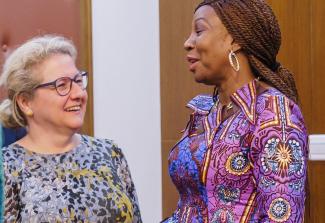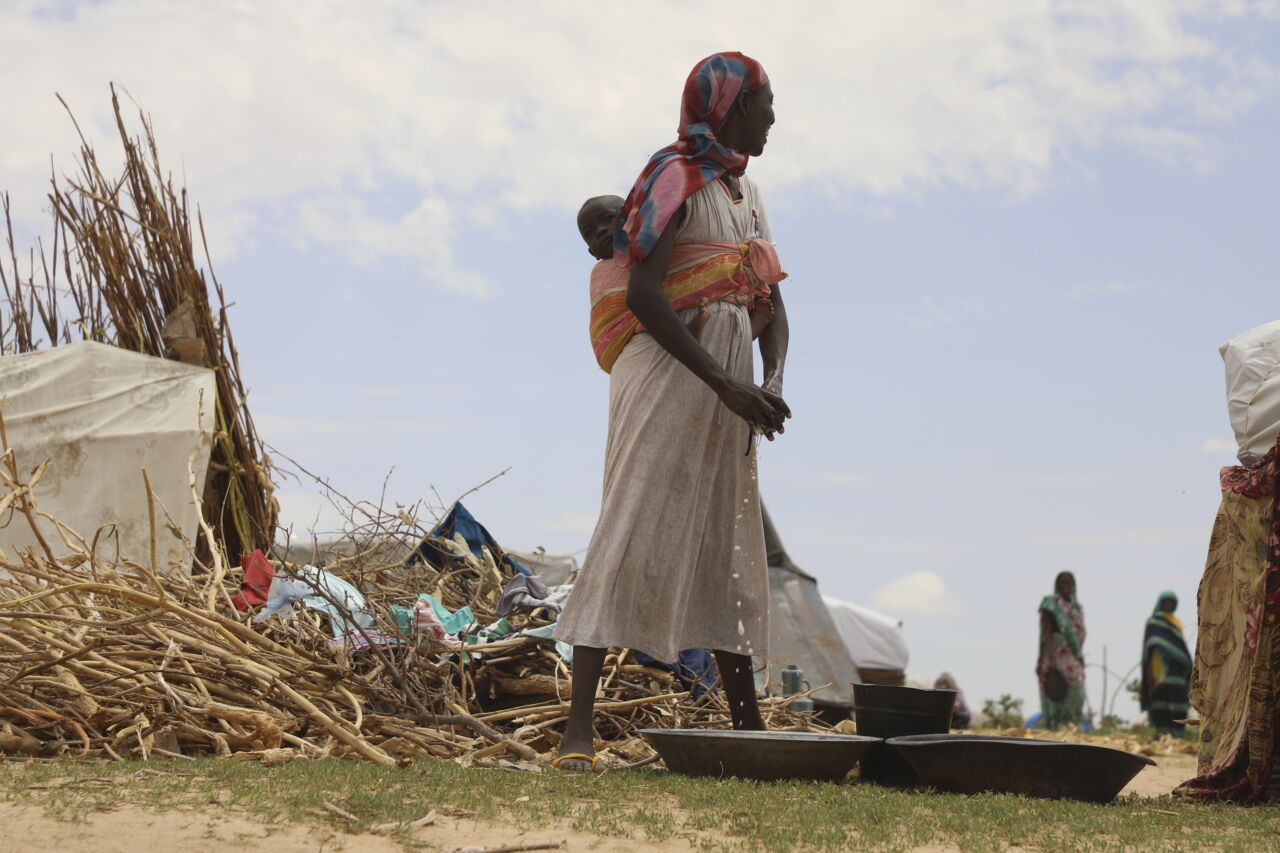German policy
Germany values respect, reciprocity and alliances

Europe needs Africa to be a close partner. That is James Shikwati’s conclusion. It is also the starting point of the BMZ’s new Africa strategy. We too are aware of Europe no longer being Africa’s only partner.
The BMZ’s approach to cooperation is therefore first and foremost based on respect and reciprocity. We believe in alliances, not unilateral action. While we respect the worldview, values and interests of our African partners, we will not renounce our own values and interests. We thus support the rule of law and democratic institutions, strong administrations and broad-based political participation. We consider carefully with whom we seek cooperation.
Led by Federal Minister Svenja Schulze, the BMZ is doing more than previously to support African goals (which are spelt out, for example, in the African Union’s Agenda 2063). As cooperation must build on African institutions and initiatives, we are investing more in interaction, exchange of knowledge, ideas and mutual understanding. Germany also strongly supports efforts to make the voices of African states and the AU heard appropriately in multilateral fora. Federal Chancellor Olaf Scholz, for example, recently expressed himself in favour of the African Union joining the G20.
For the sake of a common future, we need awareness of the past. As the Federal Government spelt out in its coalition agreement, we want to overcome continuities from the colonial era. This applies both to legacies in Germany and to international dynamics that affect, for example, world trade or agriculture. One implication is that migration both within and from Africa must be managed in a fair way. The benefits must be shared, so they accrue to the migrants themselves, to the countries they move to as well as to the countries they leave. African partner governments worry about brain drain, but they also keep telling us that they need knowledge transfer and that they struggle to employ all their young people. These issues must all be tackled in responses to the challenges that Africa faces and that James Shikwati has listed adeptly.
Not by coincidence, the first major topic of our Africa strategy is “sustainable economic development, employment and prosperity”. Germany was one of the first and still is one of the biggest supporters of the African Continental Free-Trade Area, which will be a game changer in terms of more value creation and trade in Africa. In cooperation with the private sector, BMZ promotes investments – in renewable energies, in pilot facilities for green hydrogen as well as in vaccine production. The overarching goal is a just transition to environmental sustainability and social justice. BMZ action, moreover, is aligned with the EU’s Global Gateway Initiative, the respective Africa investment plan of which amounts to € 150 billion.
The BMZ strategy stresses alliances, not unilateralism. That shows in our focus on cooperating with African institutions and initiatives. It is equally evident in our contributions to the joint initiatives of Team Europe and our efforts to link bilateral action to multilateral initiatives prudently. Consider, for example, recent bilateral and multilateral Climate and Development Partnerships.
The scope of our new Africa strategy exceeds what I have stated so far. It includes resilient food systems and local value generation. We are keen on improved supply-chain standards, including in the food sector. We support social protection, access to basic health care and pandemic prevention. We want structural disparities in societies, particularly for women and girls, to be overcome. Moreover, we support the preconditions for development: peace and security. The BMZ’s strategy is quite clear: when priorities must be set, we will not do so on our own, but involve our African and European partners.
Link
BMZ, 2023: Shaping the future with Africa. The Africa strategy of the BMZ. (Also available in French.)
https://www.bmz.de/resource/blob/137602/bmz-afrika-strategie-en.pdf
Birgit Pickel is the director-general in charge of African affairs at Germany’s Federal Ministry for Economic Cooperation and Development.
www.bmz.de















